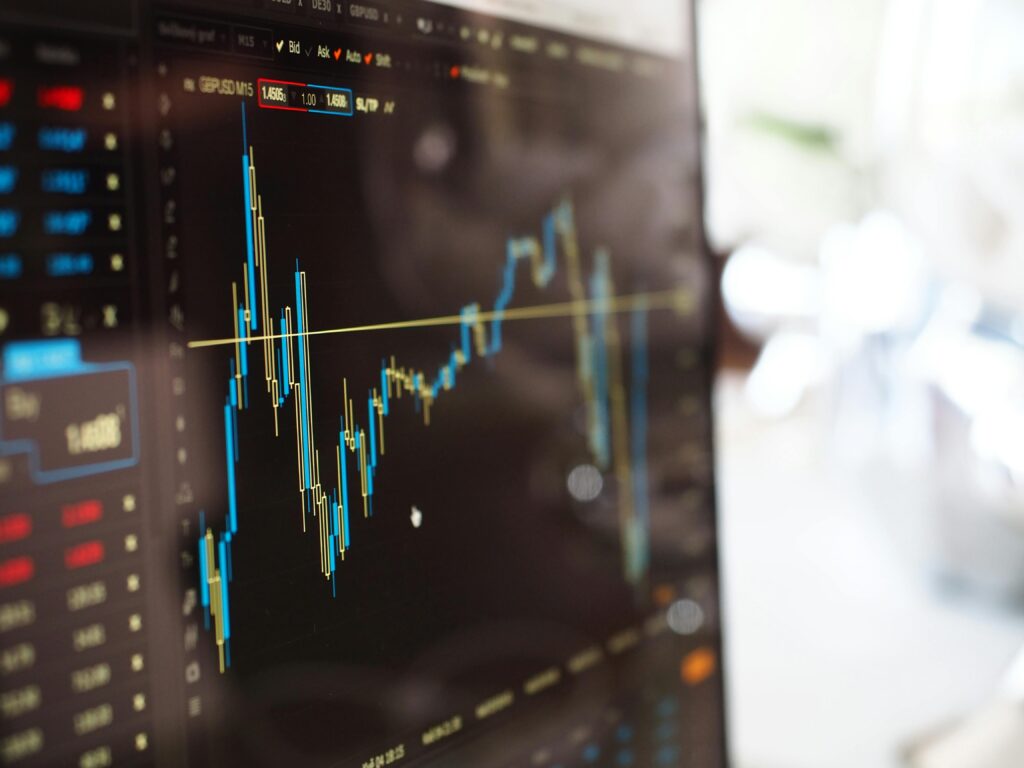Trading can be an exciting way to grow your wealth, but having the right tools is essential to ensure you make informed decisions and avoid costly mistakes. As a beginner, you may feel overwhelmed by the number of tools and platforms available. Don’t worry! In this blog, we’ll simplify it for you by covering the top trading tools for beginners needs to get started confidently.

1. Trading Platforms: Your Gateway to the Market
A trading platform is where all the action happens. It’s the software or app that connects you to the stock market, allowing you to buy, sell, and monitor stocks.
Top Platforms for Beginners
- Zerodha Kite – A beginner-friendly platform with a clean interface and excellent charting tools.
- TradingView – Known for its simple design, TradingView offers charts, stock screeners, and real-time data.
- Upstox Pro – Provides fast order execution and advanced features like technical analysis and indicators.
Why Beginners Need It: Without a trading platform, you can’t execute trades or monitor your portfolio. Opt for platforms with low brokerage fees and an easy-to-navigate interface.
2. Stock Screeners: Find the Right Stocks
Finding the right stock to trade can be tricky. Stock screeners filter out thousands of stocks based on criteria like price, volume, and industry.
Best Stock Screeners for Beginners
- Finviz: A free and easy-to-use stock screener to filter stocks by price, sector, or volume.
- Screener.in: Perfect for Indian investors to identify fundamentally strong stocks.
- TradingView Screener: Allows users to screen stocks directly within the platform.
Why Beginners Need It: A stock screener saves time by helping you find opportunities without analyzing hundreds of stocks manually.
3. Charting Tools: Analyze Stock Trends
Charts help traders understand how a stock’s price has moved historically and predict future movements. As a beginner, you’ll rely on simple technical indicators like moving averages and support/resistance levels.
Best Charting Tools
- TradingView: Offers customizable charts, technical indicators, and trend analysis tools.
- MetaTrader 4 (MT4): Popular among forex traders for its detailed analysis tools.
- Zerodha Kite Charts: Simple and beginner-friendly charting tools for Indian investors.
Why Beginners Need It: Charts allow you to analyze patterns and make decisions based on data rather than emotions.
4. Paper Trading Simulators: Practice Without Risk
Before you put your real money at stake, practice trading through paper trading simulators. These tools let you trade in a virtual environment without risking real capital.
Top Simulators for Beginners
- TradingView Paper Trading: Practice trades on real market data without any risk.
- Upstox Demo Account: Offers a beginner-friendly platform to practice live market trades.
- MetaTrader 4 Demo: Excellent for learning forex and commodities trading.
Why Beginners Need It: Simulators give you the confidence to execute trades and test your strategies without losing money.
5. News Aggregators: Stay Updated on Market Trends
News plays a critical role in trading. Any economic announcement, corporate earnings report, or global event can impact stock prices. A good news aggregator keeps you updated.
Best News Sources for Traders
- Moneycontrol: Covers Indian markets, news updates, and expert opinions.
- Economic Times: A reliable platform for business and financial news.
- Benzinga: Offers real-time news specifically tailored for traders.
Why Beginners Need It: Staying informed helps you predict market movements and avoid trading during uncertain times.
6. Risk Management Tools: Protect Your Capital
Risk management tools like stop-loss orders and calculators help traders minimize their losses. No matter how good your strategy is, risk management is crucial for long-term success.
Top Risk Management Tools
- Stop-Loss Orders: Use this tool on your trading platform to automatically sell your stock at a set loss percentage.
- Position Size Calculators: Tools like Trade Brains Calculator or manual formulas help you decide how much to invest in each trade.
Why Beginners Need It: Protecting your trading capital ensures you stay in the game longer.
7. Trading Journals: Track Your Performance
A trading journal is where you log all your trades – entry points, exit points, profit/loss, and strategies. Analyzing this data can help you identify mistakes and improve.
Best Trading Journals
- TraderVue: Helps you analyze your trading history with detailed performance metrics.
- Microsoft Excel: Keep a simple spreadsheet to manually record trades and track results.
Why Beginners Need It: Reviewing past trades helps you learn from mistakes and refine your strategy over time.
8. Technical Analysis Tools: Understand Market Signals
Technical indicators help traders identify trends, reversals, and potential entry/exit points. As a beginner, you can start with a few simple indicators like:
- Moving Averages
- Relative Strength Index (RSI)
- Bollinger Bands
Where to Find Technical Analysis Tools
- TradingView: Integrated technical indicators and charting tools.
- Zerodha Kite: Offers built-in tools like moving averages and volume indicators.
Why Beginners Need It: Technical analysis allows you to make logical trading decisions based on trends rather than guesses.
9. Community Forums: Learn from Other Traders
Being part of a trading community can boost your learning. Engage with experienced traders, share strategies, and get answers to your questions.
Best Forums for Beginners
- TradingView Community: Share ideas and get feedback on your trades.
- Investing.com Forums: Discuss market trends with traders globally.
Why Beginners Need It: Communities offer support, ideas, and advice when you’re unsure about market movements.
Conclusion: Choose the Right Tools to Start Trading
As a beginner, having the right tools will help you trade smarter and minimize risks. Start with an easy-to-use trading platform, practice on a paper trading simulator, and use charting tools to analyze stocks. Gradually incorporate risk management tools, technical analysis, and news aggregators into your trading routine.
Remember: Trading success doesn’t come overnight, but with practice, discipline, and the right tools, you can achieve consistent results.
